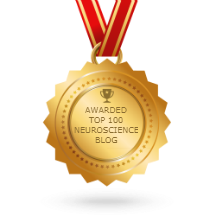-
8
Jan
The aim of this project is the deciphering of neural mechanisms of vocal learning, and in particular the role of the Basal Ganglia (BG), using the songbird model. It relies on an interdisciplinary approach combining experimental (including electrophysiology and optogenetics) and theoretical (computational modeling) approaches.
Human speech is a complex motor skill and vocal learning is one of the most striking cognitive abilities of the brain. Cortical and BG networks and their dynamic interactions are known to be centrally involved in sensorimotor learning in general, and vocal learning in particular (Graybiel, 2005).
The postdoctoral fellow will investigate changes in activity in the song-related BG nuclei and the premotor cortical areas during on-going song perturbation. To this end, he will carry out electrophysiological investigations (chronic electrophysiological recordings in various BG nuclei in singing birds) and behavioral monitoring (song recording and analysis), before and after specific manipulation perturbing song. The postdoc will develop protocols and adapt the experimental conditions under the supervision of the project leader. He will share and exploit the data in close collaboration with the other team members. In particular, strong interactions with team members working on the computational model of song learning is expected in order to constantly confront theory and experiments. The candidate will be encouraged to actively contribute with their own ideas and proposals.
The project will be carried out at the Laboratory of Neurophysics and Physiology, a join CNRS / Paris Descartes University research unit. This unit is part of the institute of neuroscience and cognition (Institut des Neurosciences et de la Cognition, INC), which brings together a community of about a 300 researchers at Paris Descartes University working on sensory, motor and cognitive functions and their interactions in the central nervous system. The research unit itself is highly interdisciplinary and brings together electrophysiologists, histologists, physicists and behavioralists working on the themes of sensory and motor physiology, motor control, learning, and memory. Research topîcs span different levels of the central nervous system, from the spinal cord to the cortex via the cerebellum and basal ganglia and from cellular physiology to behavior. We seek a highly motivated candidate with a PhD degree in Neuroscience or related disciplines.
The ideal candidate has expertise in movement physiology, Basal Ganglia physiology, and/or songbird physiology, and has previous experience with electrophysiology. The project will include in-depth quantitative data analysis, and previous experience with Matlab and/or other data analysis software is a strong advantage. Starting date for the position is flexible, and reviewing of the applications will start immediately.
Duration : 2 years contract (renewable)
Place : Cerebral dynamics group, Laboratory of Neurophysics and Physiology
Paris Descartes University, Paris, FRANCE
Salary : 2000 – 2500€ per month (depending on experience),
funded by the Agence Nationale de la Recherche
Contact :
To apply, send an e-mail to Arthur Leblois (arthur(dot)leblois(at)parisdescartes(dot)fr)
with a cover letter, a CV, the list of publications and the summary of the PhD dissertation.
- Published by Dimitrios A. Adamos in: Jobs
- RSS feed subscription!

 Neurobot via RSS
Neurobot via RSS
